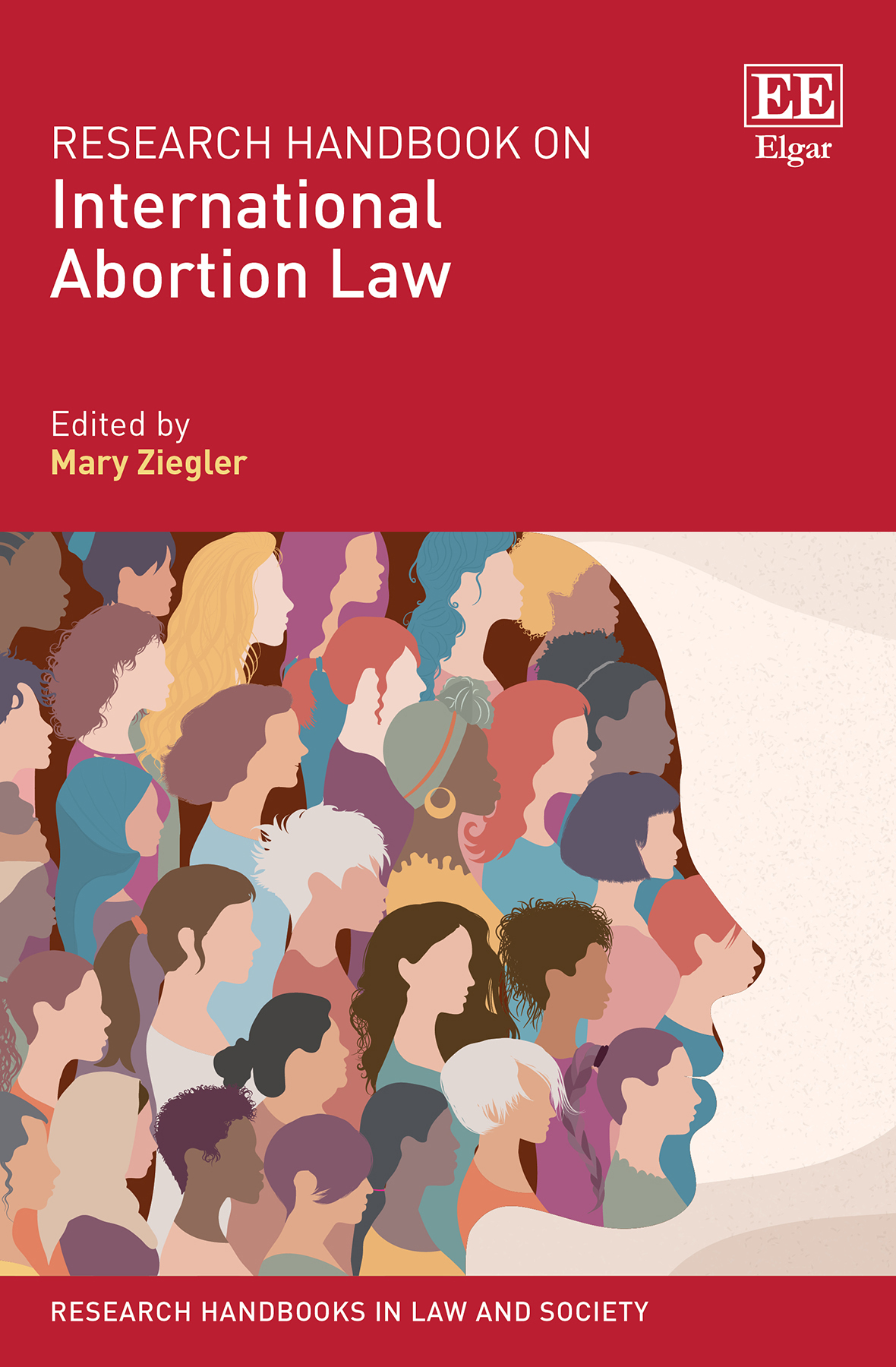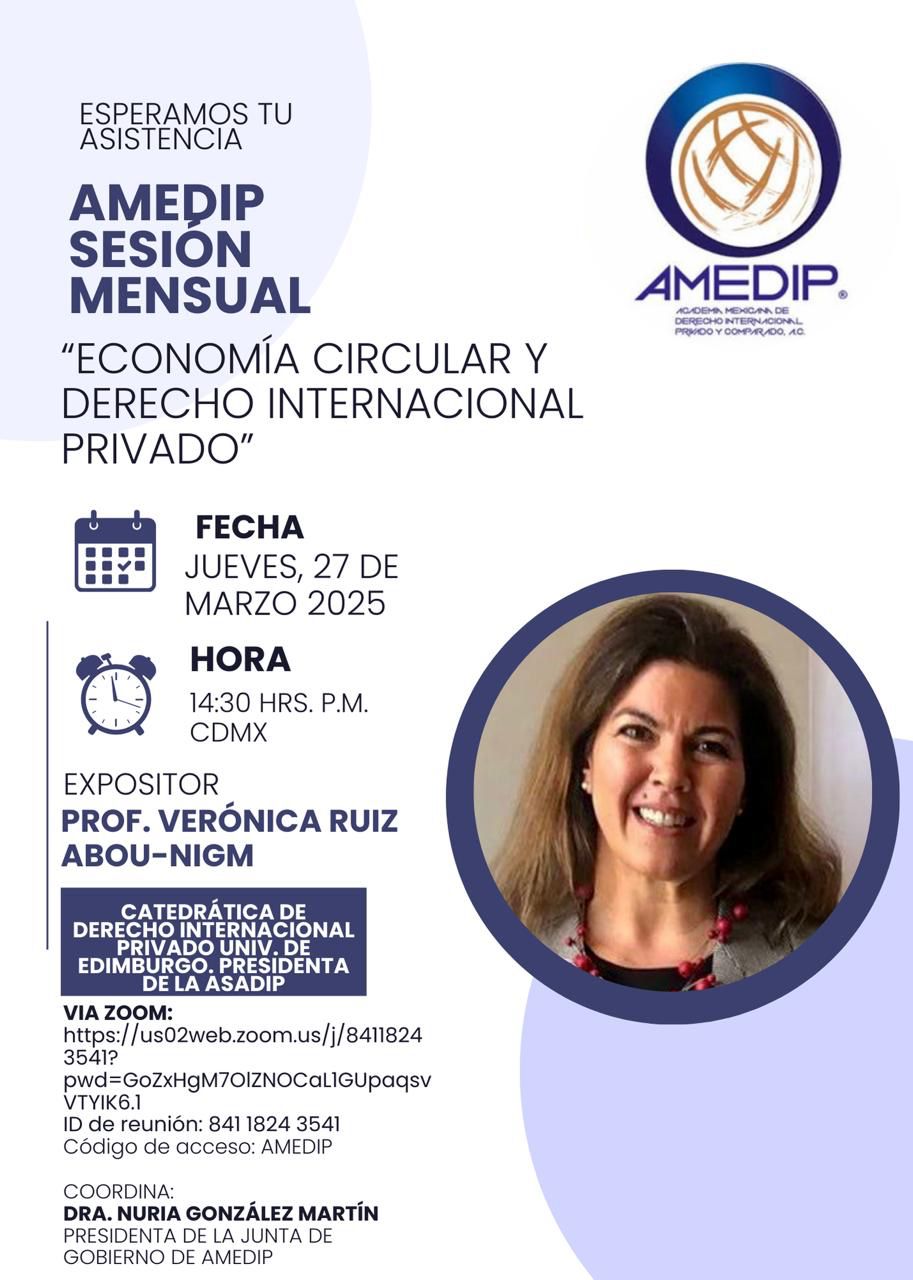Views
Book review: Research Handbook on International Abortion Law (Cheltenham: Edward Elgar Publishing, 2023)

Written by Mayela Celis
Undoubtedly, Abortion is a hot topic. It is discussed in the news media and is the subject of heated political debate. Indeed, just when one thinks the matter is settled, it comes up again. In 2023, Elgar published the book entitled “Research Handbook on International Abortion Law”, ed. Mary Ziegler (Cheltenham: Edward Elgar Publishing Limited, 2023). For more information, click here. Although under a somewhat misleading name as it refers to international abortion law, this book provides a wonderful comparative overview of national abortion laws as regulated by States from all the four corners of the world and internal practices, as well as an analysis of human rights law.
This book does not deal with the conflict of laws that may arise under this topic. For a more detailed discussion, please refer to the post Singer on Conflict of Abortion Laws (in the U.S.) published on the blog of the European Association of Private International Law.
In this book review, I will briefly summarise 6 parts of this book (excluding the introduction) and will provide my views at the end.
PIL and (De)coloniality: For a Case-by-Case Approach of the Application of Postcolonial Law in European States
Written by Sandrine Brachotte who obtained a PhD. in Law at Sciences Po, Paris and is a Guest Lecturer at UCLouvain (Saint-Louis, Brussels).
1. PIL and (De)coloniality in Europe
This post follows Susanne Gössl’s blog post series on ‘Colonialism and German PIL’ (especially s. 3 of post (1)) and offers a French perspective of the issue of PIL and (de)coloniality – not especially focused on French PIL but based on a francophone article to be published soon in the law and anthropology journal Droit et Culture. This article, called ‘For a decolonisation of law in the global era: analysis of the application of postcolonial law in European states’, is addressed to non-PIL-specialist scholars but builds on a European debate about PIL and (de)coloniality that has been nourished by scholars like Ralf Michaels, Horatia Muir Watt, Veronica Ruiz Abou-Nigm, as well as by Maria Ochoa, Roxana Banu, and Nicole Štýbnarová, notably at the occasion of the 2022 Edinburgh conference (reported about on this blog, where I had the chance the share a panel with them in relation to my PhD dissertation (see a short presentation on the EAPIL blog)).
The Dubai Supreme Court on the Enforcement of Canadian (Ontario) Enforcement Judgment
Can an enforcement judgment issued by a foreign court be recognized and enforced in another jurisdiction? This is a fundamental question concerning the recognition and enforcement of foreign judgments. The answer appears to be relatively straightforward: “No”. Foreign enforcement judgments are not eligible to be recognized and enforced as they are not decisions on the merits (see in relation with the HCCH 2019 Convention, F Garcimartín and G Saumier, Explanatory Report (HCCH 2020) para. 95, p. 73; W Hau “Judgments, Recognition, Enforcement” in M Weller et al. (eds.), The HCCH 2019 Judgments Convention: Cornerstones, Prospects, Outlooks (Hart 2023) 25). This is usually referred to as the “prohibition of double exequatur” or, following the French adage: “exequatur sur exequatur ne vaut”. This question was recently presented to the Dubai Supreme Court (DSC), and its decision in the Appeal No. 1556 of 16 January 2024 offers some useful insights into the status foreign enforcement (exequatur) decisions in the UAE.
News
Defending Access to Justice: The Crucial Battle for the IJI
Published on behalf of the IJI, Den Haag
In the heart of The Hague, a critical institution of international legal knowledge faces an existential threat. The International Juridical Institute (IJI) (translated in English to mean the Hague Institute for Private International Law), a venerable organization with a century-long history of providing essential legal guidance, stands on the brink of liquidation due to declining government support.
Founded in 1918 at the iconic Peace Palace, the IJI emerged as a unique global resource. Born in the aftermath of World War I, the institute was conceived as a “gift to the world” noble vision supported by leading businessmen, ministers, and statesmen. The IJI has been a beacon of legal expertise for over a hundred years, offering free and cost-effective advice in the complex realm of private international law. The institute’s current predicament is a stark testament to the fragility of specialized legal resources. Successive government cuts, culminating in eliminating the social advocacy subsidy scheme in 2019, have systematically undermined the IJI’s financial stability. What makes this situation particularly alarming is not just the potential loss of an institution but the broader implications for access to justice.
The IJI is not merely an archive of legal knowledge; it is a critical resource for individuals navigating complex international legal challenges. Many of these cases involve vulnerable populations, including children, who rely on expert guidance to traverse intricate cross-border legal landscapes.
Ironically, the government’s cost-cutting measures may ultimately prove counterproductive. The reduction in funded legal aid is likely to generate more protracted and expensive legal proceedings, potentially negating any initial savings.
The IJI is making a final, humble appeal: a modest annual subsidy of €260,000 to continue its vital work. This relatively small investment could ensure another century of legal expertise and maintain critical access to justice for countless individuals.
How You Can Help
The legal community and concerned citizens have a unique opportunity to make a difference:
- Sign the Petition: Visit the IJI petition page and add your name to support the institute’s continued existence.If you would like to support this cause, we would like to add your signature to the grant application. You can click on the next link: https://petities.nl/petitions/behoud-de-toegang-tot-het-recht-voor-iedereen?locale=de. This leads you to a website where you can sign very easily by giving your name (on the field ‘naam’), email address (on the field ‘emailadres’) and domicile (on the field ‘woonplaats’). You could also tick the box if you want your name visible on the list, if not, you remain anonymous. Please note that after signing, you will receive an email in which you are asked to confirm your signature by clicking on the provided link. Only after confirming, the signature will be registered.
- Spread Awareness: Share the IJI’s story within your professional networks and social circles.
- Contribute Ideas: Of course, we are also open to other ideas that can ensure that our wonderful institute can experience a second 100-year term. If you would like to exchange thoughts with us about this, please do send us an email to info@iji.nl and we will get in touch.
The potential loss of the IJI represents more than the closure of an institution. It symbolizes a potential erosion of specialized legal knowledge, international cooperation, and accessible justice.
As members of the legal community, we have a responsibility to support institutions that serve the broader public good. The IJI’s century of service is a testament to the power of dedicated legal expertise in bridging complex international legal challenges.
Together, we can help ensure that this invaluable resource continues to serve global legal needs for generations to come.
Thank you very much for your support!
Virtual Workshop (in English) on April 1: Carlos Esplugues on “Take Domestic Law and Run? The Application of Foreign (Private? State?) Law in Times of Uncertainty”

On Tuesday, April 1, 2025, the Hamburg Max Planck Institute will host its monthly virtual workshop Current Research in Private International Law at 11:00 a.m. – 12:30 p.m. (CEST). Professor Carlos Esplugues (University of Valencia) will speak, in English, about the topic
“Take Domestic Law and Run? The Application of Foreign (Private? State?) Law in Times of Uncertainty”
The possible application of foreign law is one of the features of contemporary private international law, a discipline that is particularly sensitive to the social, political and economic environment in which it operates. However, the redefinition of the role of the State in modern societies, technological changes or the growing wave of intolerance and fear towards what comes from abroad in many parts of the world are creating a new environment that affects this question in a pluralistic way. Beyond the classical issue of the nature of the applicable law and its relationship to the process, questions are being raised about the viability of this possible applicability and the conditions under which it can be established.
The presentation will be followed by open discussion. All are welcome. More information and sign-up here.
If you want to be invited to these events in the future, please write to veranstaltungen@mpipriv.de.
AMEDIP’s upcoming webinar: Circular Economy and Private International Law (27 March 2025 – In Spanish)

The Mexican Academy of Private International and Comparative Law (AMEDIP) is holding a webinar on Thursday 27 March 2025 at 14:30 (Mexico City time – CST), 21:30 (CET time). The topic of the webinar is ‘Circular Economy and Private International Law’ and will be presented by Prof. Verónica Ruiz Abou-Nigm (in Spanish).


